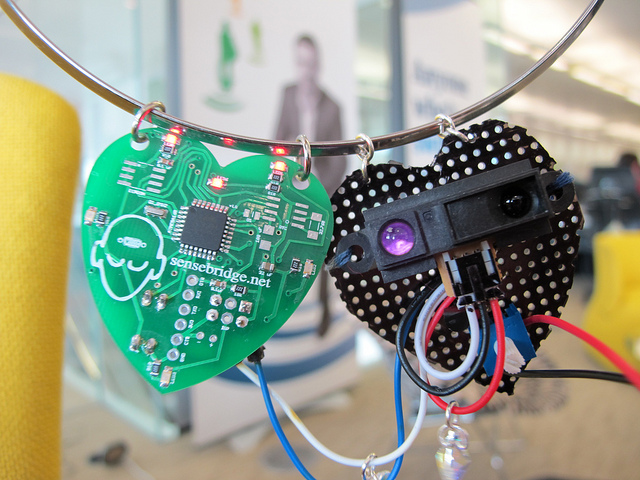We’ve almost made it. This is the third to last post in our series on positive thinking. This is also the first part of the answer to the BIG question…can the mind heal the body?
If this is the first post you’ve landed at, catch up with us. Here are the first five posts in the series:
- Part 1: Where did ‘The Power of Positive Thinking’ come from?
- Part 2: Mind-Body Goes Mainstream
- Part 3: The Seduction of Positive Thinking
- Part 4: In the Weeds of Positive Thinking
- Part 5: Disconnects
Part 6
Is it true? Can the mind heal the body?
Yes. And no.
Yes: There is no denying that the mind is connected to the body and the body to the mind. Mind and body are in fact one in the same.
…but…
No: There is no concrete evidence that the mind can definitively heal the body.
This week, we’ll start with the ‘no’ side of the coin.
No, the mind cannot cure the body.
Friedman and Rosenman
In 1974, two cardiologists, Friedman and Rosenman, in San Francisco began noticing that the majority of their patients sat at the edges of their seats in the waiting room. Fingers drumming along the arm rests with nervous energy. They found this curious and designed a study to see if there was a personality trait that made certain people prone to develop heart disease.

photo credit: Rain Rabbit via photopin cc
They recruited a cohort of people and gave them a personality test which divided the group into those with type A personalities (high strung, high achievement, high stress), and those with type B personality (laid back, go with the flow). They followed this group over an eight year period to see who developed heart disease. They were stunned to discover that the people with type A personality were twice a likely to develop heart disease as those with type B personalities. This was HUGE, headline making news. This study is why when we see a stressed out coworker we think, “They’re going to give themselves a heart attack.”
What didn’t get reported was the follow-up study. Researchers followed back up with the group a little ways down the road to see if the initial findings held true, that people with a type A personality are prone to heart disease. This second look at the initial cohort not only didn’t confirm the original conclusion but refuted it. The study participants with type A personalities lad a lower incidence of heart disease than people with type B personalities when the time frame was expanded. It turns out that personality wasn’t a good predictor of how your heart will perform throughout your life.
Cancer Support Groups
Also out of Northern California, David Spiegel was a psychiatrist at Stanford and he was frustrated. Spiegel felt like the mind-body/positive thinking movement was giving cancer patients false hope. He thought a much more productive approach would be to encourage patients to look at their fears around their diagnosis and prognosis instead of plastering them over with positive thoughts.
Spiegel recruited fifty women with a diagnosis of terminal cancer to participate in a support group
designed to help them explore their fears around death and cancer treatment. He found support group members began to cope better with their illness. They were more emotionally stable than compared to patients who hadn’t been in a support group. He was elated. Spiegel thought he could use these findings to refute the claims of the positive thinking message.
However, when the results were fully flushed out, something surprising came to light. The women in the support group had lived, on average, 18 months longer than patients without support group participation. Rather than refute positive thinking claims, Spiegel saw that social support could improve longevity.
The finding from this study were reported everywhere from morning news programs to PBS to Oprah. Patients to this day are encouraged to join a support group, not just because it will help them cope, but because it’s believed to increase your lifespan.
Unfortunately, the results from this study have never been replicated, even by Spiegel himself. We don’t know if it just happened to be the types of cancer the support group participants had in the first study that made them live longer or another factor, but we do know it can’t be replicated.
Support groups absolutely help patients cope with fears and the management of a diagnosis, they just can’t claim to extend life.
Off to Finland and Sweden
The last study I want to look at is the most recent out of Scandinavia. Researched looked at Finnish and Swedish registry data of 59, 548 people who had completed an online questionnaire about personality traits and health behavior. They wanted to connect cancer risk to personality.
Specifically they were curious to know if the traits of neuroticism and extroversion had any impact on risk of getting or dying from cancer.
They followed the group for 30 years and found no connection between cancer risk or death and the personality traits of neuroticism or extroversion.
As much as we want to say that having a certain personality trait or participating in a support group will have a predictive impact on our health, there is no clear cut answer. We know that while the mind and body are connected their connection is mysterious. Does this mean that it is all bad news? Absolutely not!
Next week, we’ll look into the studies that show us how our mind can impact our body. There is lots of good news ahead. While a type A personality won’t doom you to heart disease and a support group can’t be counted on to extend your life, the mind can help us get through challenges. The mind is our key to becoming resilient. Till next week…
Looking for practical ways to use the mind-body connection? Check out
Chronic Resilience: 10 Sanity-Saving Strategies for Women Coping with the Stress of Illness.
“I highly recommend this groundbreaking book!”
-Kris Carr, NY Times Bestselling Author

